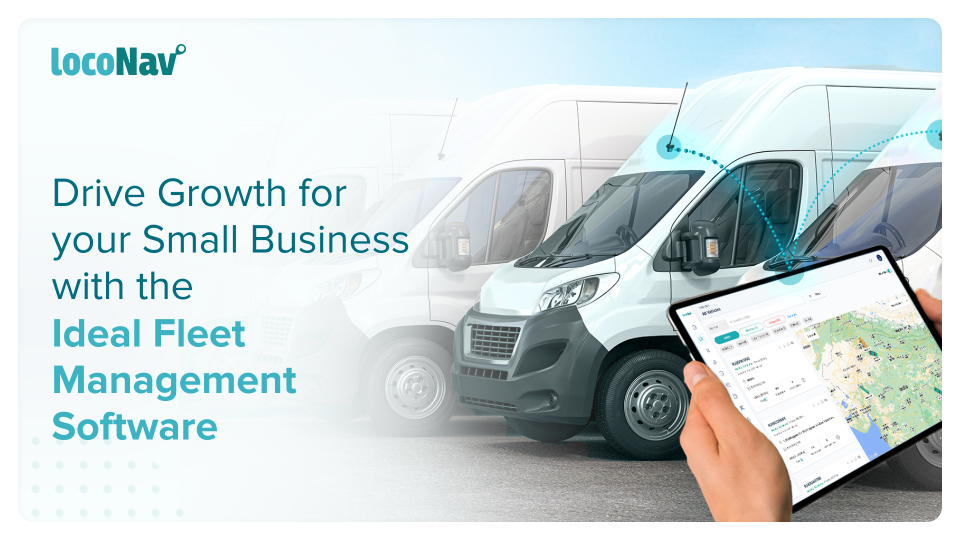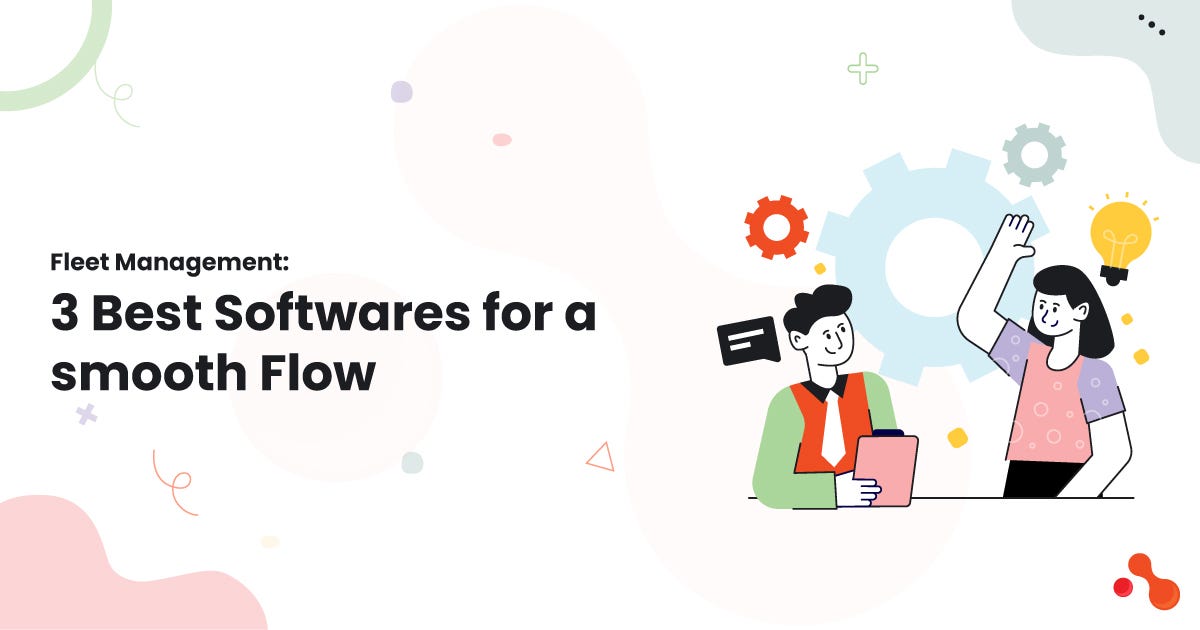Small Fleet GPS Tracking: The Smart Move to Protect Your Assets
How to Boost Your Business Efficiency With Small Fleet GPS Tracking
Amplify your business efficiency with small fleet GPS tracking by implementing real-time vehicle monitoring, route optimization, and fuel consumption management. You'll gain instant visibility into your fleet's locations, speeds, and routes while utilizing data-driven knowledge to reduce travel time and fuel costs. Analyze driver behavior - real-time vehicle tracking solutions to improve safety and performance, and revolutionize maintenance scheduling with automated service notifications. Enhance customer service by providing accurate arrival times and verifying service completion. By leveraging these powerful tools, you'll streamline operations, cut expenses, and raise overall service quality. Investigate further to access the full potential of GPS tracking for your small fleet
Key Takeaways
- Implement real-time vehicle tracking to gain instant visibility of fleet locations, speeds, and routes.
- Utilize route optimization algorithms to reduce travel time, fuel consumption, and improve delivery efficiency.
- Monitor and analyze fuel consumption patterns to identify cost-saving opportunities and reduce emissions.
- Leverage driver behavior analysis to improve safety, reduce accidents, and lower insurance costs.
- Enhance customer service by providing accurate arrival times and real-time delivery tracking.

real-time vehicle tracking solutions
Real-Time Vehicle Tracking
Nearly all GPS tracking systems. find out more about GPS tracking offer real-time vehicle monitoring, providing businesses with instant visibility into their fleet's whereabouts. This feature allows you to track your vehicles' locations, speeds, and routes in real-time, enabling you to make educated decisions and respond quickly to changing situations

real-time vehicle tracking solutions
Real-time tracking enhances your ability to manage your fleet efficiently. You can optimize routes, reduce fuel consumption, and improve response times to customer requests. By monitoring driver behavior, you can identify and address unsafe practices, promoting a culture of safety within your organization.
Geofencing alerts are an essential component of real-time tracking. You can set up virtual boundaries and receive notifications when vehicles enter or exit designated areas. This feature helps you guarantee drivers stay on assigned routes and alerts you to potential unauthorized use of company vehicles.
Historical data complements real-time tracking by providing understanding into long-term trends and patterns. You can analyze past routes, speeds, and stops to identify areas for improvement in your fleet operations. This data-driven approach. find out more about GPS tracking allows you to make strategic decisions to enhance efficiency, reduce costs, and improve overall fleet performance

click here for fleet management solutions
Route Optimization
Route optimization utilizes GPS tracking data to enhance your business's operational efficiency. You'll benefit from real-time traffic updates that allow for flexible route adjustments, while shortest path algorithms calculate the most efficient routes between multiple stops. By implementing these strategies, you can greatly reduce fuel consumption, leading to cost savings and improved environmental performance.
Real-Time Traffic Updates
One of the most powerful features of GPS tracking for businesses is real-time traffic updates. These updates allow your fleet to maneuver around congestion, accidents, and road closures, ensuring timely deliveries and improved customer satisfaction. By integrating traffic alert systems into your GPS tracking solution, you'll receive instant notifications about potential delays, allowing you to proactively adjust routes and schedules.
Modern GPS tracking platforms often incorporate data from various sources, including direction apps and government traffic monitoring systems. This thorough approach provides a more accurate picture of road conditions, helping your drivers make informed decisions. find out more about GPS tracking. You can set up customized alerts for specific routes or areas, ensuring your team is always aware of potential issues
Real-time traffic updates also contribute to driver safety by reducing the likelihood of your fleet encountering hazardous road conditions. By avoiding congested areas, you'll minimize the risk of accidents and reduce driver stress. Additionally, this feature can help you optimize fuel consumption by preventing unnecessary idling in traffic jams. Ultimately, leveraging real-time traffic data through GPS tracking will enhance your business's efficiency, safety, and bottom line.
Shortest Path Algorithms
A cornerstone of GPS tracking efficiency (find out more about GPS tracking) lies in the implementation of shortest path algorithms - find out more about GPS tracking for route optimization. These advanced pathfinding techniques enable your fleet to maneuver the most efficient routes, reducing travel time and fuel consumption. By leveraging algorithm efficiency, you'll minimize unnecessary detours and optimize your drivers' time on the road

reliable fleet management system for small fleets
Shortest path algorithms analyze various factors, including distance, traffic conditions, and potential obstacles, to determine the most efficient route. This data-driven approach guarantees that your drivers always take the safest and most direct path to their destinations. You'll notice a significant reduction in idle time and improved overall productivity.
Implementing these algorithms in your GPS tracking system allows for real-time route adjustments, adapting to changing road conditions and unexpected events. This adaptive optimization keeps your fleet moving efficiently, even when faced with road closures or traffic congestion. By consistently utilizing the most efficient routes, you'll reduce wear and tear on your vehicles, minimize the risk of accidents, and improve your company's bottom line. Embracing shortest path algorithms is an essential step in maximizing your fleet's efficiency and securing the safety of your drivers.
Fuel Consumption Reduction
Building on the efficiency gains from shortest path algorithms, GPS tracking systems offer powerful tools for reducing fuel consumption through route optimization. You'll find that these systems can analyze various factors to determine the most fuel-efficient routes for your fleet. By considering traffic patterns, road conditions, and vehicle specifications, you can markedly cut down on unnecessary fuel usage.
Implementing fuel efficiency tips through GPS tracking can lead to substantial cost savings and promote eco-friendly practices. Consider the following table showcasing the potential benefits:
| Benefit | Short-term | Long-term |
| Fuel Cost Reduction | 10-15% | 20-30% |
| CO2 Emissions Decrease | 5-10% | 15-25% |
| Vehicle Wear Reduction | 5-8% | 12-18% |
| Delivery Time Improvement | 8-12% | 15-20% |
To maximize these benefits, you should: - find out more about GPS tracking
Regularly update your GPS software for the latest route optimization algorithms
Train drivers on fuel-efficient driving techniques
Monitor and analyze fuel consumption data to identify areas for improvement
Implement a maintenance schedule based on GPS-tracked vehicle usage

fleet management technology for small business
Fuel Consumption Monitoring
GPS tracking systems offer a powerful tool for fuel consumption monitoring, enabling businesses to enhance their fleet's efficiency. By implementing these systems, you'll gain access to detailed consumption analytics that provide essential perspectives into your vehicles' fuel usage patterns. You can track real-time fuel consumption rates, identify excessive idling, and pinpoint instances of aggressive driving that lead to increased fuel waste.
With this data at your fingertips, you can develop targeted fuel efficiency strategies customized to your fleet's specific needs. You'll be able to set benchmarks for optimal fuel consumption and monitor each vehicle's performance against these standards (find out more about GPS tracking). This allows you to quickly identify outliers and address issues promptly, preventing unnecessary fuel expenses
Moreover, GPS tracking helps you analyze fuel consumption trends over time, enabling you to make informed decisions about route optimization, vehicle maintenance schedules, and driver training programs. By leveraging this technology, you can greatly reduce your fleet's overall fuel consumption, leading to substantial cost savings and a reduced carbon footprint. Ultimately, fuel consumption monitoring through GPS tracking allows you to make data-driven decisions that enhance your fleet's efficiency and safety while minimizing operational costs.
Driver Behavior Analysis
GPS tracking enables you to conduct real-time performance monitoring of your drivers, providing useful perspectives into their behavior on the road. You'll be able to identify risky driving patterns, such as speeding, harsh braking, or rapid acceleration, which can affect safety and efficiency. This data presents coaching and improvement opportunities, allowing you to address specific issues and enhance overall driver performance.
Real-Time Performance Monitoring
In today's fast-paced business environment, real-time performance monitoring through driver behavior analysis has become an essential tool for fleet managers - find out more about GPS tracking. By leveraging GPS tracking technology, you can gain significant understanding into your drivers' performance, leading to substantial fleet productivity enhancement and operational cost savings
With real-time monitoring, you'll be able to track key metrics such as speed, acceleration, harsh braking, and idling time. These data points allow you to identify patterns and address potential safety concerns promptly. By analyzing this information, you can implement targeted training programs to improve driver behavior and reduce the risk of accidents.
Moreover, real-time performance monitoring enables you to optimize routes and schedules based on actual driver performance. You can identify areas where efficiency can be improved, such as reducing unnecessary idling time or optimizing fuel consumption. This data-driven approach allows you to make informed decisions that directly impact your bottom line.

check out small fleet management
Identifying Risky Driving Patterns
Leveraging advanced telematics and GPS technology, you can identify and address risky driving patterns before they lead to accidents or costly damage. GPS tracking systems provide real-time data on driver behavior, allowing you to monitor and analyze various metrics that indicate potential safety risks.
You'll be able to detect instances of harsh braking, rapid acceleration, and speeding, which are often precursors to accidents. By addressing these behaviors promptly, you can greatly improve accident prevention efforts - find out more about GPS tracking. The system can also alert you to excessive idling, which wastes fuel and increases wear on vehicle components
Driver distraction is another critical factor in road safety. GPS tracking solutions can integrate with in-vehicle sensors to detect phone usage, eating, or other distracting activities while driving. This data enables you to implement targeted training programs and enforce policies that reduce risky behaviors.
Coaching and Improvement Opportunities
Once you've identified risky driving patterns, GPS tracking systems. find out more about GPS tracking provide essential data for targeted driver coaching and improvement opportunities. Use this information to develop customized team training programs that address specific areas of concern for each driver. By focusing on individual weaknesses, you'll create more effective learning experiences and improve overall fleet safety
Implement a regular performance feedback system using GPS data. Schedule one-on-one sessions with drivers to review their driving habits, highlighting both positive behaviors and areas for improvement. This approach allows you to recognize good performers while addressing issues with those who need additional support. Encourage open dialogue during these meetings to understand any challenges drivers face and collaboratively develop strategies for improvement.
Consider gamification techniques to motivate drivers. Create friendly competitions based on safe driving metrics, rewarding top performers with incentives. This approach can cultivate a culture of safety and encourage continuous improvement across your fleet. Additionally, use GPS data to identify drivers who consistently demonstrate safe behaviors and utilize their knowledge in peer-to-peer mentoring programs. By promoting a culture of continuous learning and improvement, you'll enhance your fleet's efficiency and safety while reducing operational risks and costs.
Maintenance Scheduling
Through GPS tracking, businesses can revolutionize their maintenance scheduling processes (find out more about GPS tracking). By leveraging real-time data on vehicle usage, mileage, and performance, you'll be able to implement a more efficient and proactive approach to fleet maintenance. GPS tracking systems allow you to set up automated service notifications based on actual vehicle usage rather than arbitrary time intervals, ensuring that preventive maintenance is performed at ideal times
You can configure alerts for specific maintenance tasks, such as oil changes, tire rotations, or brake inspections, based on mileage thresholds or engine hours. This data-driven approach helps you avoid costly breakdowns and extend the lifespan of your vehicles. Additionally, GPS tracking enables you to monitor engine diagnostics and identify potential issues before they escalate into major problems.
Improved Customer Service
GPS tracking systems can greatly enhance your customer service capabilities. By providing real-time location data of your fleet vehicles, you'll be able to offer more accurate estimated arrival times to your customers. This increased transparency helps manage expectations and reduces customer frustration due to unexpected delays.
You can employ GPS tracking to optimize route planning, ensuring that your drivers take the most efficient paths to reach customers. This not only improves service responsiveness but also allows you to serve more customers in less time. Additionally, GPS data can be applied to verify service completion times. find out more about GPS tracking, helping to resolve any disputes and build trust with your clientele
Implement a system that allows customers to track their deliveries or service vehicles in real-time. This self-service option can greatly reduce the number of customer inquiries and improve overall satisfaction. You can also use GPS data to analyze service patterns and identify areas for improvement based on customer feedback. By continuously refining your operations, you'll be able to provide a safer, more reliable service that sets you apart from competitors and nurtures long-term customer loyalty.
Frequently Asked Questions
How Much Does Small Fleet GPS Tracking Typically Cost?
You'll find small fleet GPS tracking costs vary based on several factors. Pricing models typically include monthly subscriptions or one-time purchases. Consider hardware quality, features, and number of vehicles when evaluating cost-effective solutions for your safety-focused business.

solutions for managing small fleets
Can GPS Tracking Be Integrated With Existing Business Management Software?
You can integrate GPS tracking with your existing business software, but you'll face integration challenges - find out more about GPS tracking - get details on fleet management software. Evaluate software compatibility carefully. Many GPS systems offer APIs or plugins to connect with common management platforms, enhancing your fleet's safety and efficiency
Is Employee Consent Required to Implement GPS Tracking?
You'll need to take into account employee privacy and legal implications when implementing GPS tracking. Generally, you should obtain consent to protect yourself from potential lawsuits. Consult with legal experts to guarantee compliance with local laws and regulations.
What's the Average Return on Investment for Small Fleet GPS Tracking?
You'll see significant ROI with small fleet GPS tracking. Conduct a thorough ROI analysis to quantify benefits. Fleet optimization typically yields 10-25% cost savings through improved routing, reduced fuel consumption, and enhanced driver safety.
Are There Any Privacy Concerns Associated With GPS Tracking for Businesses?
Yes, there are privacy concerns with GPS tracking. find out more about GPS tracking. You'll need to address data security and employee monitoring issues. Implement strict policies, secure your systems, and communicate transparently with your staff to mitigate risks and guarantee compliance

check out small fleet management
Conclusion
By implementing small fleet GPS tracking, you're not just adopting a technology—you're revolutionizing your business operations. From real-time tracking to maintenance scheduling, each feature contributes to a more efficient, cost-effective, and customer-centric operation. As you optimize routes, monitor fuel consumption, and analyze driver behavior, you'll see tangible improvements in your bottom line. Don't let your competition leave you in the dust; welcome GPS tracking and drive your business towards a more profitable future.